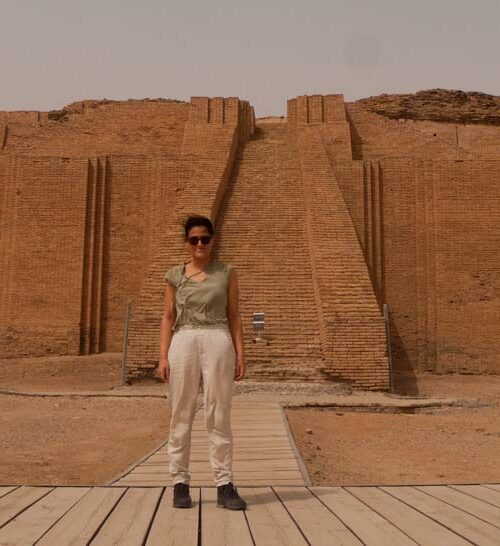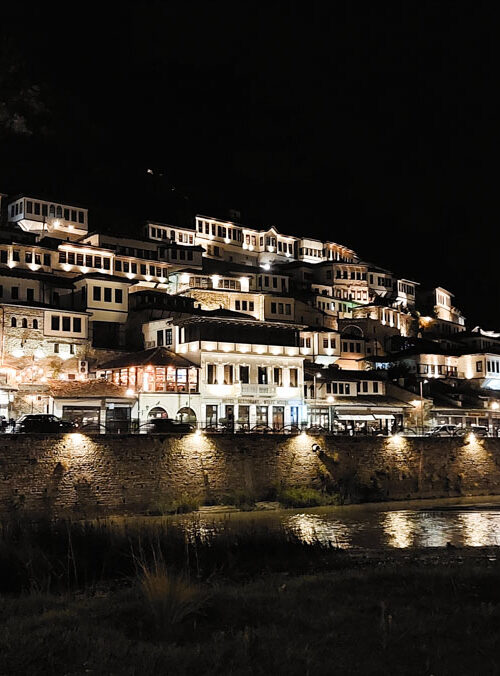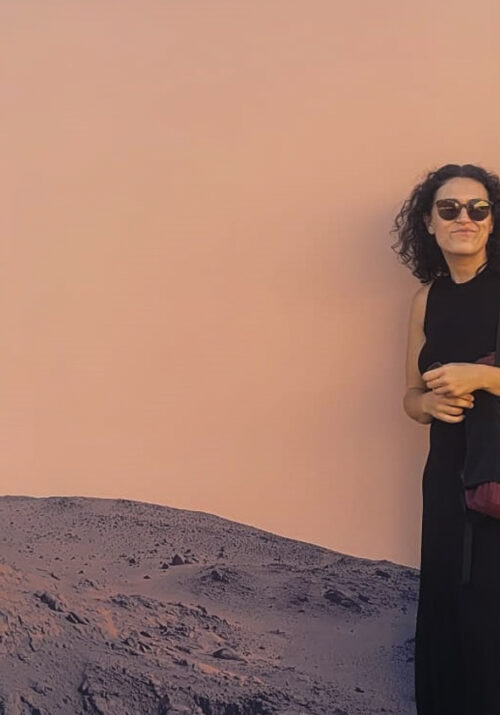Philippine diaspora is considered one of the largest worldwide. According to the World Migration Report 2022 from the International Organization of Migration (IOM), about 6 million Filipinos live abroad, which represents more than 5 percent of the Philippines’ population. But not all Filipino emigrants flee disaster or unemployment in their home country. In today’s interview, we talk to Marie Annabelle Marquez aka Manna, a 35-year-old digital fundraiser from Makati, Philippines whose life has considerably changed since she started her new job in Vienna, Austria in 2019.

“I thought Europe would be super socially progressive and technologically advanced, but I was shocked that it wasn’t! “
— Manna
Hi Manna, thanks for sharing your story and perceptions for isitoexplores.com today! You were a digital fundraiser for the United Nations (UN) in the Philippines for many years. Then you decided to quit the UN and move to Vienna. What made you take that step?
I wasn’t really planning to leave, even if my personality actually doesn’t fit the UN. To be honest, in my mid-twenties, I had kind of an awakening about the UN. You have to be very good at playing the game. It’s for people who like pushing paper. But it’s not really the place to learn hands-on or grow in marketing. And just because you work at a non-profit, it doesn’t mean the people are nicer or more hardworking or that the work is always more meaningful. At the end of the day, it’s just another company. It depends on what you like and don’t like. And for me, after many years, it didn’t feel like I was letting go of something so huge.
But you always wanted to live abroad.
Yes, but it’s very hard with a Brown passport because we don’t have the same visa options as people from developed countries. We have to be sponsored. So the only way for me to live abroad was either to get married – which is a bit crazy – or to find work. And I needed to make sure that my life wouldn’t be more difficult than the one I already had, so blue-collar work was not an option. Then I saw this opportunity to try and live in Europe. And I basically just sent my application.

You had never been to Austria before moving there. Were there any big surprises for you in Austria or in Europe in general?
Austria has quite a good reputation. Everyone told me it’s nice, quite chilled and the architecture is pretty. Only two friends of my parents warned me that Austrians are masungit (grumpy), which I wouldn’t say now. I thought Europe would be super socially progressive and technologically advanced, but I was shocked that it wasn’t! Germany still uses fax machines sometimes, and I don’t know where I could even find a fax machine in the Philippines. Even my 67-year-old parents pay via mobile app when they go to the pharmacy or get takeaway. But lots of Filipinos have the same stereotype of Europe as I do.
Oh yeah, digitization still sucks in many central European countries! I left the Philippines almost 5 years ago, and today, I still don’t get the same network quality here in Germany. [Isi rolling her eyes and laughing] Let’s talk about your cultural discoveries then. What differences would you say are true now?
Definitely, the Philippines is a collectivist culture and Austria is an individualist culture for sure. In Austria, family units are smaller and don’t live together. People keep their social circles quite distinct from each other. They don’t mix work and friends. In Manila, my work friends would sleep at my house. I’m sure you experienced the same when you were in the Philippines.
Totally, my colleagues were my friends.
That’s very normal in the Philippines. But here, people take more time to warm up to you. Especially as an adult, it takes longer to enter a circle. In the Philippines, you can connect with someone just because you know someone in common. Like “this is my cousin’s neighbor” and you’re immediately friends. Instead, in Austria, even if you’re my aunt, we’ll not be close just because we’re related. I noticed that Austrians are more cynical while Filipinos are more trusting. We are more naturally smiley and helpful.
The Philippines is regarded as the ‘land of smiles’ for a reason!
[Manna laughing] It says a lot that Austrians think I’m friendly, while Filipinos think I’m aloof! Yeah, there is no hidden motive. But in Austria, if you’re too warm towards someone, they’re like “Why?” And the way we treat the elderly is different. Some friends here live in the same city as their parents, but they don’t see each other for months. They’re surprised when they find out that I host family or friends in my apartment and never fight with them. What’s there to fight about? If you respect each other, sharing space is a lot of fun. Plus, multi-generational households are also much easier in modern life, for example to help with children.

Do you see any similarities between Austria and the Philippines?
Yeah, they also have things in common. For example, both cultures can be passive aggressive and indirect communicators.
Really? You as a Filipina are exceptionally direct, I would say.
Oh yeah, my communication style is not Austrian, that’s for sure. And it’s also not typically Filipino. Normally, if you’re not happy with someone or something, an Austrian or a Filipino will go around the topic and avoid conflict. Religion is another similarity. I didn’t expect Austrians to be so religious and conservative, just like Filipinos.
It’s been four years since you moved to Vienna. Have you brought your lifestyle from Manila to Vienna or did you have to change a lot?
In Manila, I had way more time and energy for work, socials and hobbies. I had to change my lifestyle because I couldn’t sustain it here. It was my first time living alone and I had to take care of everything alone. Back home, we had three housekeepers. I never had to clean or cook food. And I also never had to commute. Because my family had a driver, I just left the house without thinking of routes or anything. I actually never took a jeepney like you often did.
I actually lived a very different life in the Philippines. Have you faced any prejudice in Austria?

I feel like Filipinos have a similar standing with Latinos in Austria. We don’t face as much outrageous prejudice compared to Middle Easterners. But I did notice that white men under forty have very specific ideas about what Southeast Asian women are like. They always feel like they have to teach me something. A lot of them haven’t come to Southeast Asia, so I still don’t know where exactly they’re picking up this image.
Maybe media plays a role. Or Southeast Asia is just too far away.
Actually guys barely ask me about my background. There’re even people who get my country wrong, like one guy who kept confusing the Philippines with Singapore. I also dated an expat who identified as progressive and liberal. But everything he would say was like the opposite for me. His ideas and fantasies were all about educating “natives”. So I think many guys still carry some unconscious biases about the things they’re doing and women they’re dating.

I often realize that we barely talk about developing countries in Europe. If the media covers developing countries, it’s often about hunger and life in the streets. But we barely hear from developments superior to European standards.
That’s one of the issues with the UN. Internally, most of the “international experts” come from predominantly white, developed countries. There’s like a “glass ceiling” for brown people. It’s very difficult to reach a certain level when you’re from a developing country. It reinforces that it’s the wealthy nations who need to teach something. But if you think of the majority of our world’s population, for example India, Brazil and China… they probably also have so many advancements we can learn from.
Sometimes, I wonder why we still live with these colonial left-overs. Should “white” nations not finally move on and recognize the power of other parts of the world?
I do think it’s on purpose that these nations don’t talk about developing countries that way. For there to be wealthy countries, there must be poor countries. They would gain less if they treated the rest of the world as equals. And the US is the biggest funder of the United Nations. How could they be impartial?
Manna, it was so nice talking to you and getting your perspective on life for a Filipina in Austria. I hope blog readers get intrigued to learn more and maybe even revise their views on countries like the Philippines. Salamat po, thank you!




Leave a Reply